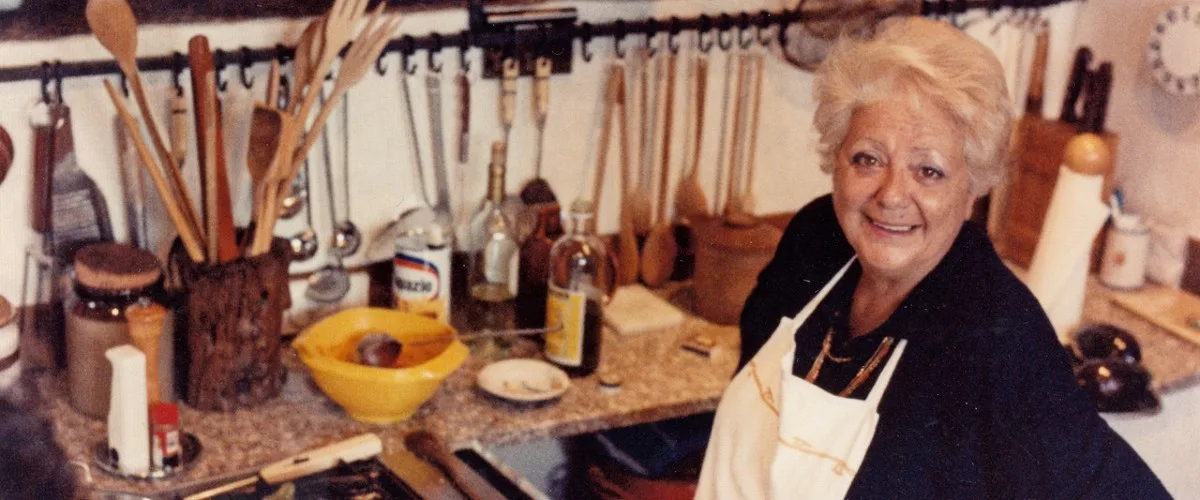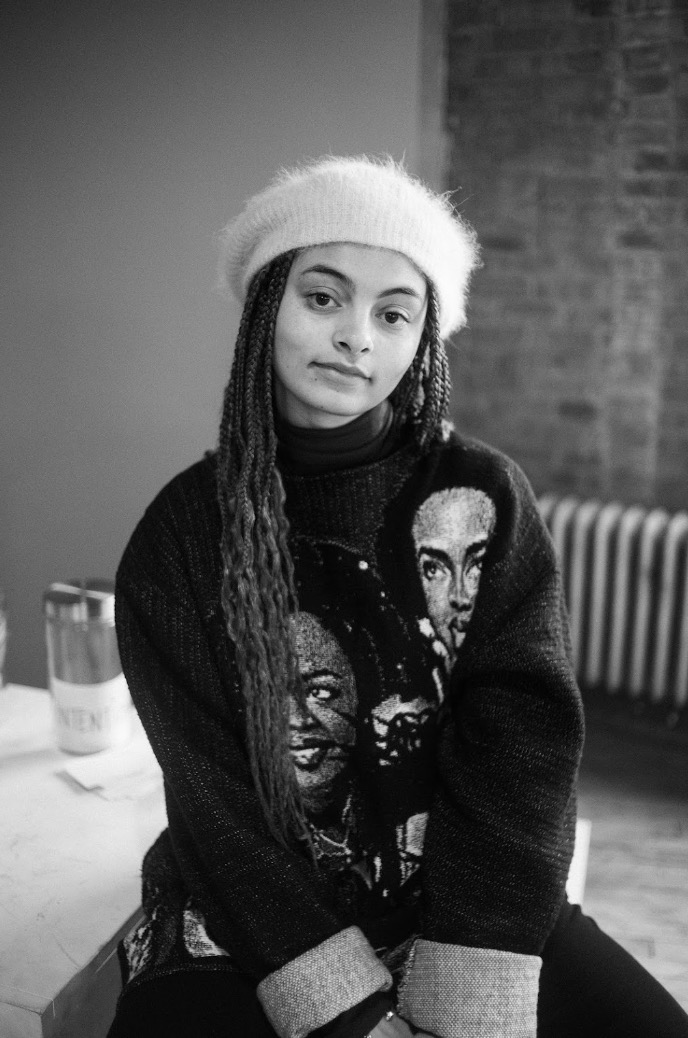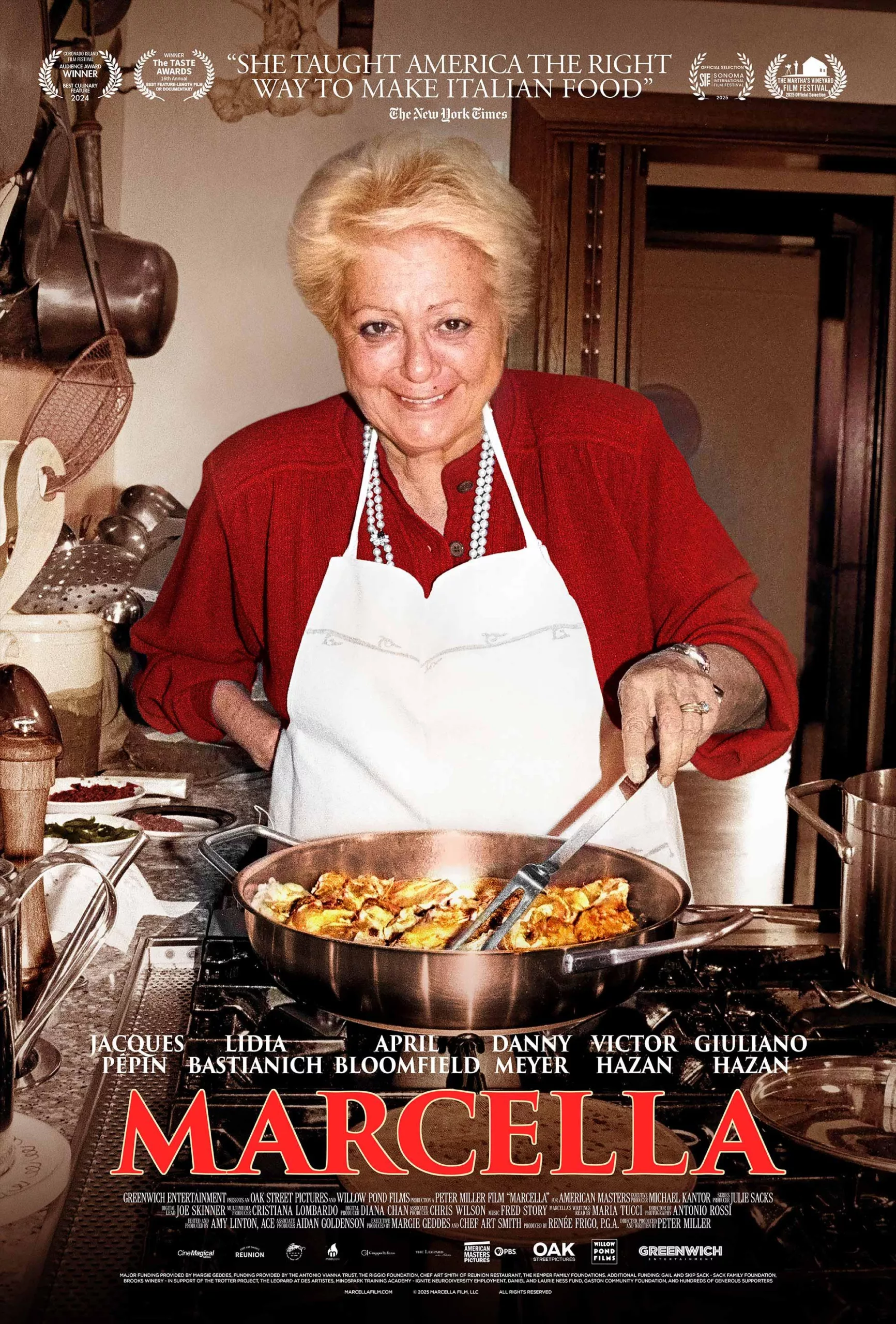Last year, Martha made her way back onto our screens; this year, it’s Marcella.
“Marcella,” the new documentary from director Peter Miller, recounts Marcella Hazan’s rise to culinary fame and the path she paved for modern Italian recipes. Her story is the origin of many Americans, making the movie easily relatable as it showcases the standard, so-called rags-to-riches American Dream. It’s a story we’ve heard many times, but it always feels triumphant, similar to Marcella’s approach to cooking: it’s “very simple but not easy.”
“Marcella” relies heavily on two common documentary tactics: interviews and archival footage. Simultaneously, it gives Marcella some autonomy of her posthumous production by pairing snippets of the Italian landscapes with pieces of her memoir, Amarcord: Marcella Remembers. She thoughtfully cites Aristotle and recites her respect and loyalty to her home, Italy. The narration, voiced by Maria Tucci, provides parallels in the movie’s message, the guiding throughline as the audience navigates the plethora of people sharing their reflections on the beloved pioneer.
Before immigrating to the United States in the 1950s, Marcella held a dual doctoral degree in biology and natural sciences. Perhaps it’s this deep understanding of science that allows her to alchemize in the kitchen, experimenting in her home laboratory, using her sense of smell to adjust the x-factor. Her cookbook creation process proves this, testing a recipe a minimum of three times to ensure the measurements can be replicated with precision and ease. On the surface, food is one of the most accessible forms of art as culinary creations are a necessity in our day-to-day lives. However, to wield the weapons of a chef in top-notch kitchens where efficiency is an art of its own, physical ability is often a prerequisite due to the quick maneuvers around close corners. This subliminal systemic ableism is squashed by Marcella, who, overtime, became a quiet representation for people with physical disabilities. As a young girl, she was injured, leaving her arm and hand with partial mobility. Despite exhibiting some shame around her distinction, this did not dim Marcella’s spotlight and savviness.
Throughout her career, no matter the industry, it was evident that Marcella’s practice and impact in the world were persuaded by pedagogical proximity. Her commitment to education feels reminiscent of the concept that anyone can cook. Her recipes remained minimal, at times only 3 or 4 items; the intangible ingredient of time was often the most complicated component. Marcella’s emphasis in making something truly good stems from the quality of the ingredients, which became the biggest battle after leaving Europe post-World War II. Customer satisfaction is at its highest when there is void being filled, and Marcella bringing classic Italian recipes to America can be compared to the California gold rush. It’s hard to imagine a time where extra-virgin olive oil was not regularly available, and we have Marcella to thank.
In 1969, Marcella makes her way back to the classroom and begins teaching cooking classes in her Manhattan apartment that later land her a cookbook deal with Harper’s Magazine Press. This lucky yet likely series of events in late 1960s New York City makes me wish there was a fictional, romanticized, dramatized retelling of her story as it is done so often for male trailblazers (e.g. “A Complete Unknown” and A24’s forthcoming “Tony”). Although the film surveys several of her books, the delicious bite is packed with flavor from the publisher drama. Hopping from Harper’s to Knopf to HarperCollins was strategic for successful sales, but it also allowed them to have the support of the powerhouse editor, Judith Jones, who also worked with Marcella’s contemporary, Julia Child.
“Marcella” rides in the wake of “Martha,” and with the successes of the respective food-focused personalities, it’s easy for one to compare the two. In addition to the details of their backstory, both films highlight how their romantic partners played a pivotal role in their professional evolution. For Marcella, her husband Victor Hazan was the perfect glass of red wine to go with her best Bolognese. He, too, wrote a popular book, a narrative guide to the world of wine. The Hazans complemented one another naturally, both on and off the table.
While the movie “Marcella” alone does not explicitly push the trending traditional-wife agenda, the timing of its release unintentionally contributes to the ongoing growth of conservatism in media. However, there is a significant degree of difference between the dames of daytime network television and TikTok content creators. Ironically, these derivatives of culinary professionals both have an emphasis on the simplicity of home cooking and forms of familial recipes, yet there’s substantial sophistication that accompanies the traditional cooking-influencer format. Like Marcella’s recipes, the best meals and the proper teaching take time.
Marcella’s magic was motivated by adaptation to what was accessible. With her chic cigarette and keen sense of smell, Mrs. Hazan’s “you know when you know” mindset made her a maven of Italian-American cuisine; her cookbooks and this film leave behind her legacy with the ability to reshape one’s confidence in the kitchen. And this film doesn’t give us Hazan’s best recipes; it uses Marcella’s approach to cooking to memorably tell her story.




















